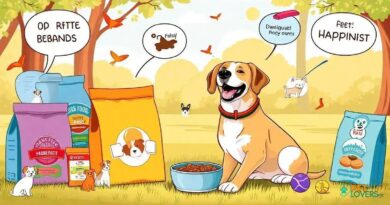What is: Artificial preservatives in dog food
What are Artificial Preservatives in Dog Food?
Artificial preservatives in dog food are synthetic substances added to pet food to prolong shelf life and maintain freshness. These chemicals prevent spoilage caused by bacteria, mold, and yeast, ensuring that the food remains safe for consumption over an extended period. Common artificial preservatives include BHA, BHT, and ethoxyquin, which are often debated regarding their safety and potential health impacts on dogs.
Amazing Deals on Dog Products!
Shop now for incredible deals on dog products at Amazon.com.
LEARN MORE
Why Are Artificial Preservatives Used?
The primary reason for using artificial preservatives in dog food is to enhance the product’s longevity. Pet food manufacturers aim to provide a stable product that can withstand varying storage conditions without degrading. By incorporating these preservatives, companies can reduce waste and ensure that their products remain palatable and nutritious for longer periods, making it more convenient for pet owners.
Common Types of Artificial Preservatives
Some of the most frequently used artificial preservatives in dog food include butylated hydroxyanisole (BHA), butylated hydroxytoluene (BHT), and ethoxyquin. BHA and BHT are antioxidants that help prevent fats in the food from becoming rancid. Ethoxyquin, originally developed as a pesticide, is used to inhibit spoilage but has raised concerns about its safety for long-term consumption by pets.
Health Concerns Associated with Artificial Preservatives
There are ongoing debates regarding the safety of artificial preservatives in dog food. Some studies suggest that long-term exposure to these chemicals may lead to health issues such as allergies, cancer, and liver damage. Pet owners are increasingly concerned about the potential risks associated with these additives, prompting many to seek out natural alternatives that do not contain artificial preservatives.
Natural Alternatives to Artificial Preservatives
In response to health concerns, many pet food manufacturers have begun to explore natural preservatives as alternatives to synthetic options. Ingredients such as vitamin E (tocopherols) and vitamin C (ascorbic acid) are often used to maintain freshness without the potential risks associated with artificial preservatives. These natural options are generally considered safer and healthier for dogs.
Labeling and Regulations
In many countries, pet food labels must clearly indicate the presence of artificial preservatives. Regulations vary by region, but pet owners should look for terms like “preserved with” followed by the specific preservatives used. Understanding these labels can help consumers make informed choices about the food they provide to their pets.
Impact on Dog Nutrition
The inclusion of artificial preservatives in dog food can impact the overall nutritional value of the product. While these preservatives may prevent spoilage, they do not contribute to the nutritional content of the food. Pet owners should prioritize foods that not only avoid harmful preservatives but also provide balanced nutrition for their dogs.
Consumer Awareness and Trends
As awareness of pet nutrition grows, many consumers are actively seeking dog foods that are free from artificial preservatives. This trend has led to a surge in demand for organic and natural pet food options. Brands that prioritize transparency and use high-quality ingredients without synthetic additives are gaining popularity among health-conscious pet owners.
Making Informed Choices for Your Dog
When selecting dog food, it is essential for pet owners to research the ingredients and understand the implications of artificial preservatives. Consulting with veterinarians and reading reviews can provide valuable insights into the best options available. By making informed choices, pet owners can ensure their dogs receive the healthiest and safest nutrition possible.



